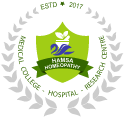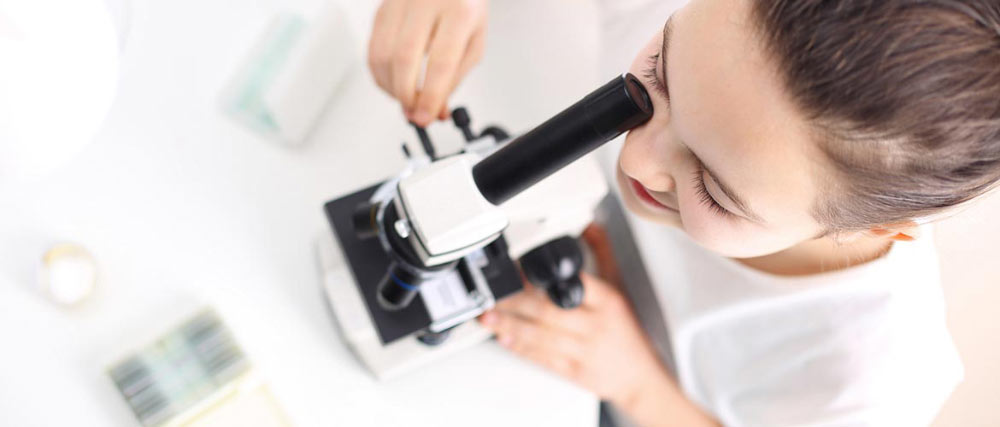Postgraduate Courses (MD in Homeopathy)
The MD in Homeopathy program at HAMSA Homeopathy Medical College is designed for those who aspire to deepen their knowledge and enhance their clinical skills in homeopathy. This advanced course offers an in-depth exploration of specialized subjects such as advanced homeopathic therapeutics, clinical research methodologies, and contemporary issues in homeopathy. Our postgraduate students engage in rigorous academic studies and hands-on clinical training, preparing them to become leaders and innovators in the field of homeopathy.
Our MD program emphasizes both theoretical understanding and practical application, ensuring that students gain comprehensive expertise in diagnosing and treating complex health conditions. The curriculum, aligned with the latest NCH PG regulations 2024 and Competency-Based Dynamic Curriculum (CBDC), is designed to foster critical thinking, clinical acumen, and research proficiency. This approach equips graduates with the skills necessary to contribute significantly to the advancement of homeopathic medicine and excel in the evolving healthcare landscape.
Elevate Your Career with HAMSA Homeopathy
Enrolling in the MD in Homeopathy program at HAMSA opens doors to advanced career opportunities in the field of homeopathic medicine. Our program is designed to support the professional growth of our students, providing them with the knowledge, skills, and experience required to excel in clinical practice, research, and academia. At HAMSA, we are committed to nurturing the next generation of homeopathic experts.
Join HAMSA Homeopathy College’s MD program and take a significant step towards becoming a distinguished expert in homeopathy. Our postgraduate courses offer a blend of academic excellence, clinical proficiency, and research innovation, ensuring you are well-prepared to make impactful contributions to the field of homeopathic medicine.
HOMOEOPATHY POST-GRADUATE DEGREE COURSE- DOCTOR OF MEDICINE IN HOMOEOPATHY
COURSE DETAILS
Duration:
- The Course shall be regular, full time and for a duration of three years.
- The student shall be regular and will be resident during one year of house-job in the campus
The objective of homoeopathy post-graduate training programme are
- Recognise the importance of Homoeopathy in context with National priorities and health
needs of the community; - Practice Homoeopathy ethically and in step with the principles of the system;
- Develop skills as a self-directed learner, recognise continuing education needs, select and use
appropriate learning resources; - Demonstrate competence in basic concepts of research methodology and epidemiology and be
able to critically analyse relevant published research literature; - Identify social, economic, environmental, biological and emotional determinants of health in
a given case, and take them into account while planning therapeutic, rehabilitative, preventive
and promotive measures or strategies; - Diagnose health problems and manage as per the scope of homoeopathy on the basis of
clinical assessment, investigations etc; - Demonstrate scientific acumen by undertaking dissertation or research project using proper
research methodology; - Play the assigned role in the implementation of national health programmes with
homoeopathy, effectively and responsibly; - Organise and supervise the chosen or assigned health care services demonstrating adequate
managerial skills in the AYUSH clinic or hospital or in the field; and - Develop skills in using educational methods and techniques applicable to the teaching of
homoeopathy medical students.
The post-graduate curriculum is a competency-based integrated framework
The curriculum will include:
- Theoretical and applied knowledge: In-depth understanding of both theoretical concepts and their
practical applications relevant to the specialty. - Practical, clinical, community, and management skills: Development of hands-on skills in
clinical practice, community health, and management specific to the specialty area. - Completion of dissertation work: Completion of a research dissertation as a key component of the
program. - Research publication or presentation: Requirement to either publish or submit a research article
in a peer-reviewed scientific journal or present a paper at the National Conference of the relevant
society. - Soft skills and attributes: Emphasis on developing interpersonal and communication skills
necessary for professional practice. - Training in research methodology, medical ethics, and medico legal aspects: Comprehensive
training in research methods, ethical practice, and understanding of legal issues in medicine. - Professionalism and lifelong learning: Fostering a commitment to professionalism and
continuous learning throughout one’s career.
SUBJECTS OF SPECIALISATION FOR HOMOEOPATHY POST-GRADUATE DEGREE COURSE
FIRST PROFESSIONAL SESSION
| S.No. | Name of the subject | No. of seats |
|---|---|---|
| 1. | Homeopathic Materia Medica | 07 |
| 2. | Organon of Medicine and Homeopathic Philosophy | 07 |
| 3. | Homeopathic Repertory and Case Taking | 07 |
| 4. | Homeopathic Pharmacy | 07 |
| 5. | Practice of Medicine | 07 |
| 6. | Pediatrics | 07 |
| 7. | Psychiatry | 07 |
| Total: | 42 |
Each programme shall be divided into two parts comprising of eighteen month each in M.D.(Homoeopathy) Part-I and M.D.(Homoeopathy) Part-II respectively.
The Courses under Part-I of each programme
| S.No. | Name of the Programme | Part – I | Part – II |
|---|---|---|---|
| 1. | M.D. (Homoeopathy) Homoeopathic Materia Medica |
|
For M.D. (Homoeopathy) Part-II examination, there shall be main specialty subject only with two papers |
| 2. | M.D. (Homoeopathy) Organon of Medicine and Homoeopathic Philosophy |
|
|
| 3. | M.D. (Homoeopathy) Homeopathic Repertory and Case Taking |
|
|
| 4. | M.D. (Homoeopathy) Homeopathic Pharmacy |
|
|
| 5. | M.D. (Homoeopathy) Practice of Medicine |
|
|
| 6. | M.D. (Homoeopathy) Pediatrics |
|
|
| 7. | M.D. (Homoeopathy) Psychiatry |
|
ELIGIBILITY CRITERIA FOR MD (HOMOEOPATHY) COURSE
- Bachelor of Homeopathic Medicine and Surgery or equivalent qualification in Homoeopathy included in the Schedule or medical qualification recognition list under the provisions of the Act, after undergoing a course of study of not less than five years and six months duration including one-year compulsory rotatory internship
- Qualified in All-India AYUSH Post-graduate Entrance Test (AIAPGET) for the said academic year conducted by an authority designated by the National Commission for Homoeopathy
- The candidate has registered himself with the State Board or NCH.
PROFESSORS
Join Over 750 Students Embracing HAMSA's Excellence
Become a Part of HAMSA to Advance Your Career and Unlock Your Potential






